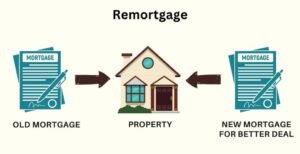
Amongst all the legalese and processes, two key terms can sound confusing: ‘exchange of contracts’ and ‘completion’. While both are crucial steps, they serve distinct purposes. Let’s break down the difference to ensure a smooth journey towards your dream home.
Exchange of Contracts: The Legal Turning Point
Making it Binding: The ‘exchange of contracts’ is the moment where the sale becomes legally binding. Both you (the buyer) and the seller sign a formal agreement outlining the agreed-upon purchase price, completion date, and other vital details.
Deposit Time: At the point of exchange, you’ll typically pay a deposit, which is a percentage (usually 10%) of the total purchase price. This deposit acts as a security measure for both parties – the seller is assured of your seriousness, and you have a financial stake in the property.
The Waiting Game Begins: Depending on when exchange of contracts happens, there may still be a few more things to finalise before completion. But in most cases, exchange of contracts usually happens once the solicitors have cleared up any queries and carried out all due diligence searches, and your formal mortgage offer has been issued.
Completion Day: Handing Over the Keys and Taking Ownership
The Finish Line: Completion day marks the official transfer of ownership from the seller to you. This is the day you’ve been eagerly anticipating – the day you receive the keys and step through the door of your new home!
Final Finances: On completion day, the remaining balance of the purchase price (after the deposit) is transferred to the seller’s solicitor (your solicitor will take care of this). You’ll also settle any outstanding fees like solicitor fees and stamp duty (if applicable).
Welcome Home!: Once all legal formalities are complete and funds are transferred, you’ll finally get your hands on the keys! It’s time to celebrate this momentous occasion and start making your new house a home.
So, what’s the key difference?
Exchange of contracts signifies a legal commitment to purchase the property at the agreed-upon price. It’s the point of no return for both parties, with financial consequences for backing out.
Completion is the final hurdle, where ownership officially transfers, and you receive the keys to your new home.
Remember: Understanding the difference between exchange and completion is essential for navigating the house buying process. Exchange marks the legal commitment, while completion is the joyous culmination of your journey, granting you the keys to your dream home!






